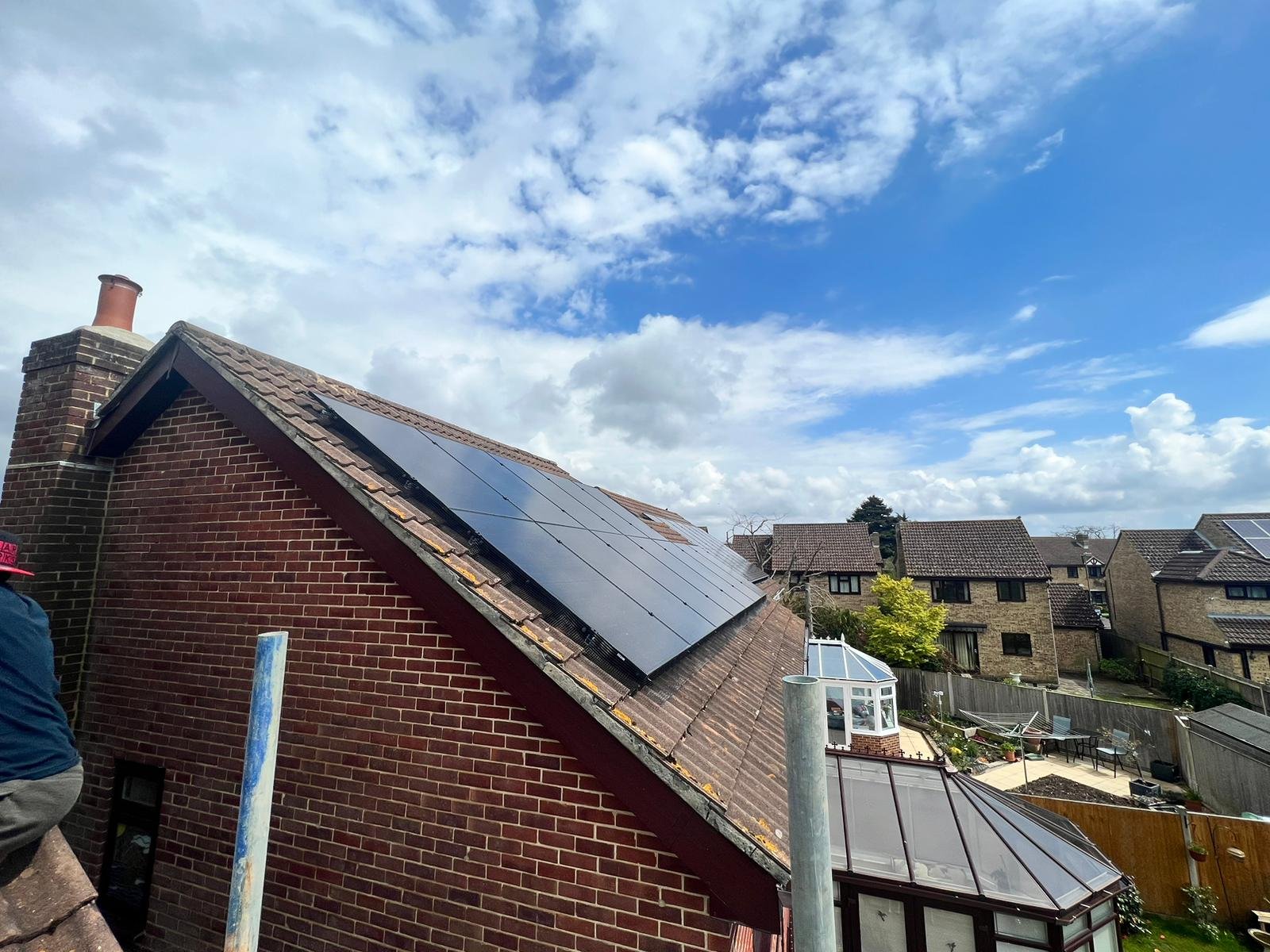How Long Does It Take Solar Panels to Pay for Themselves UK?
How Long Does It Take Solar Panels to Pay for Themselves UK?
In the pursuit of sustainable and cost-effective energy solutions, solar power has risen to prominence, offering a clean alternative to traditional electricity sources. As people think about switching to solar energy, a big question is: How long until solar panels cover their costs in the UK? This post delves into this question, exploring topics like solar energy, solar panels, installation expenses, and more.
How Long Does It Take To Make Money From Solar Panels?
The time it takes to see a return on investment for solar panels in the UK varies based on factors. These factors are the system size, installation costs, energy consumption, and local conditions.
You'll get a quicker return on investment by using best practices with your solar.
On average, homeowners in the UK can expect to see a return on their investment within 5 to 10 years.
Here's a breakdown of the key factors influencing the payback period:
System Size: Larger solar panel systems typically have higher upfront costs. However, they generate more electricity, leading to faster payback times.
Installation Costs: The cost of installing solar panels can vary based from project to project. Higher upfront costs may extend the payback period.
Homes with higher energy use stand to benefit more from solar panels. They will also have a quicker payback time.
Local Conditions: The amount of sunlight your location receives influences the efficiency of your solar panels. Areas with more sunlight generally experience faster payback periods.
Incentive Programs: Government incentives, such as the Smart Export Guarantee (SEG) in the UK, can accelerate the payback period by providing financial compensation for excess energy exported to the grid.
Electricity Prices: The current and future cost of grid electricity affects the savings generated by solar panels. Rising electricity prices can contribute to a faster return on investment.
Financing Options: The method of financing, whether through loans, leases, or outright purchase, can impact the payback period. Some financing options may result in quicker returns.
Understanding the Initial Investment
The decision to harness solar power involves an initial investment in the solar panel system and associated installation costs. Choosing the right solar panel installers is pivotal in ensuring the efficiency and longevity of your system.
While upfront costs can vary based on factors. Things such as system size, brands, and battery sizes can increase the cost of your system. However, you're likely to make money back on your system due to the rising costs of energy.
Calculating Return on Investment:
Determining the time required for solar panels to pay for themselves will vary from home to home.
Factors such as the way your panels face affect your return on investment. Those with a south-facing roof are best placed for sunlight exposure – and return on investment. Additionally, considering the costs of electricity and potential savings on energy bills contributes significantly to the overall return on investment.
System Costs and Electricity Price Dynamics:
The total system costs encapsulate the initial investment, maintenance, and any additional expenses related to the solar panel system.
As technology improves and more people install solar panels, the overall costs have been going down. When thinking about the long-term financial gains of solar power, it's important to look at the current electricity prices and be prepared for possible future increases.
National Grid and Energy Price Dynamics:
Integral to the broader energy landscape is the integration of solar power into the National Grid. Solar panels are vital for creating a less centralized energy system, decreasing dependence on traditional power sources. To assess the financial benefits of investing in solar panels, it's crucial to grasp how solar power impacts energy prices, potentially stabilizing or lowering overall costs.
The Environmental Impact of Solar Energy:
Beyond the financial considerations, the environmental impact of solar energy cannot be overstated. Solar power represents a clean and renewable energy source that significantly reduces greenhouse gas emissions and reliance on finite fossil fuels. As society becomes increasingly environmentally conscious, the positive ecological footprint of solar energy further enhances its appeal.
Government Initiatives and Incentives:
Government initiatives shape solar energy in the UK. The Feed-in Tariff helped early adopters, and now the Smart Export Guarantee supports ongoing investments.
Changes in the SEG scheme could increase or decrease your potential solar profits.
Technological Advancements in Solar Panels:
The evolution of solar panel technology is a significant factor influencing the financial equation. Technological advancements contribute to increased efficiency, durability, and affordability of solar panels. Keeping abreast of these developments is essential for those considering solar panel installation, as it directly affects the overall cost-effectiveness and longevity of the system.
Leveraging Energy Storage Solutions:
As the need for sustainable energy rises, using energy storage solutions like solar batteries is becoming more important. These batteries let homeowners save extra energy produced in sunny times, enhancing the efficiency and cost-effectiveness of solar panels.
Exploring these storage options can enhance the overall return on investment and energy independence.
Community and Local Initiatives:
In some regions, community and local initiatives play a pivotal role in promoting solar energy adoption. Collaborative efforts, such as group purchasing programs and community solar projects, can provide additional financial benefits and create a sense of shared responsibility for environmental sustainability. Exploring such initiatives can offer unique opportunities to enhance the economic feasibility of solar panel investments.
Conclusion:
Investing in solar panels in the UK is a multifaceted decision that involves a careful consideration of numerous factors, including installation costs, electricity price dynamics, and potential savings on energy bills. While the upfront investment may seem substantial, the long-term benefits, such as reduced energy bills, positive environmental impact, and potential financial incentives, position solar energy as an attractive option for both homeowners and businesses.
As technology continues to advance, costs decrease, and government initiatives evolve, the question of how long it takes for solar panels to pay for themselves becomes increasingly promising. With the added benefits of contributing to a cleaner environment, supporting decentralized energy systems, and potentially participating in community-driven initiatives, solar power stands as a beacon of sustainable and economically viable energy for the future.
Frequently Asked Questions (FAQs) about Solar Panels in the UK:
Q: How much does it cost to install solar panels in the UK?
A: The cost of installing solar panels varies based on factors such as system size, quality of panels, and installation complexities. On average, installation costs can range from £4,000 to £8,000 per kilowatt (kW) installed. However, government incentives and decreasing panel costs contribute to making solar power increasingly affordable.
Q: How long do solar panels last?
A: Solar panels typically have a lifespan of 25 to 30 years, with most manufacturers offering warranties for that duration. Regular maintenance can extend the longevity of the system, and advancements in technology continue to improve the durability of solar panels.
Q: What is the Smart Export Guarantee (SEG), and how does it work?
A: The Smart Export Guarantee is a government-backed initiative that ensures solar panel owners are paid for the excess electricity they export to the grid. Energy suppliers offer tariffs to purchase surplus energy, providing a financial incentive for investing in solar panels.
Q: Can I install solar panels if my roof doesn't face south?
A: While a south-facing roof is optimal for sunlight exposure, solar panels can still be installed on east or west-facing roofs. The efficiency may be slightly lower, but advancements in panel technology and system design can mitigate these effects.
Q: How much can I save on my electricity bills with solar panels?
A: The savings on electricity bills depend on various factors, including system size, energy consumption, and local electricity prices. On average, homeowners can expect to save between 30% to 50% on their electricity bills after installing solar panels.
Q: What happens on cloudy days or during the night when solar panels don't generate electricity?
A: Solar panels can still generate some electricity on cloudy days, albeit at a reduced rate. Additionally, the excess energy generated during sunny periods can be stored in solar batteries for use during the night or when sunlight is limited.
Q: Are there government incentives for installing solar panels in the UK?
A: While the Feed-in Tariff (FiT) scheme has ended, the Smart Export Guarantee (SEG) continues to provide financial incentives for solar panel owners. Additionally, homeowners may be eligible for the Renewable Heat Incentive (RHI) if they use solar panels for heating purposes.
Q: How does the orientation of my solar panels affect their efficiency?
A: Solar panels facing south receive the most sunlight exposure and are considered the most efficient. However, panels facing east or west can still generate a significant amount of electricity. The angle of inclination also plays a role in optimizing energy production.
Q: Can I go completely off the grid with solar panels?
A: While it is possible to go off the grid with solar panels and energy storage solutions like batteries, it may require careful consideration of energy consumption, system size, and backup power needs. Going off the grid is a more complex undertaking but offers greater energy independence.
Q: How do solar panels contribute to reducing carbon emissions?
A: Solar panels generate electricity without emitting greenhouse gases, reducing reliance on fossil fuels. By harnessing clean, renewable energy, solar power significantly contributes to lowering carbon emissions and mitigating the impacts of climate change.
Why Choose CRG Direct for Your Solar Installation?
☀️ Peace of Mind with Installation by a Trusted Energy Supplier
☀️ Cost-Effective Solutions: Affordable Packages Available
☀️ Expert Energy Advice and Painless Aftercare with No Call Out Fees
☀️ Product Warranty: 10+ Years Coverage for Solar Panels, Batteries, and Inverters
☀️ 5 Star Reviews On Google
Contact us to arrange a free, no obligation quotation
from our friendly team. We'll get back to you within one working day.
See Our Solar and Battery Installation Services in Action
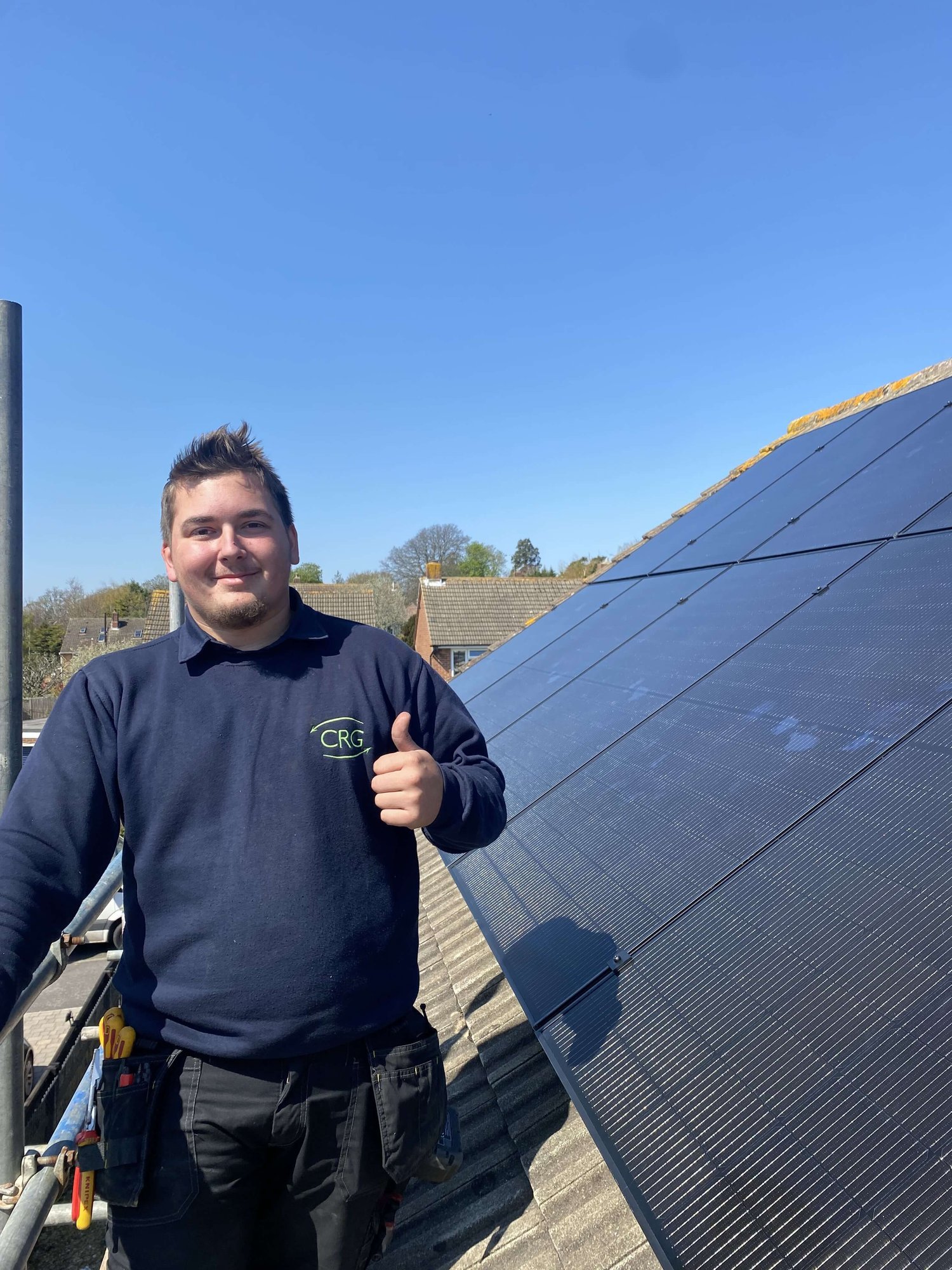

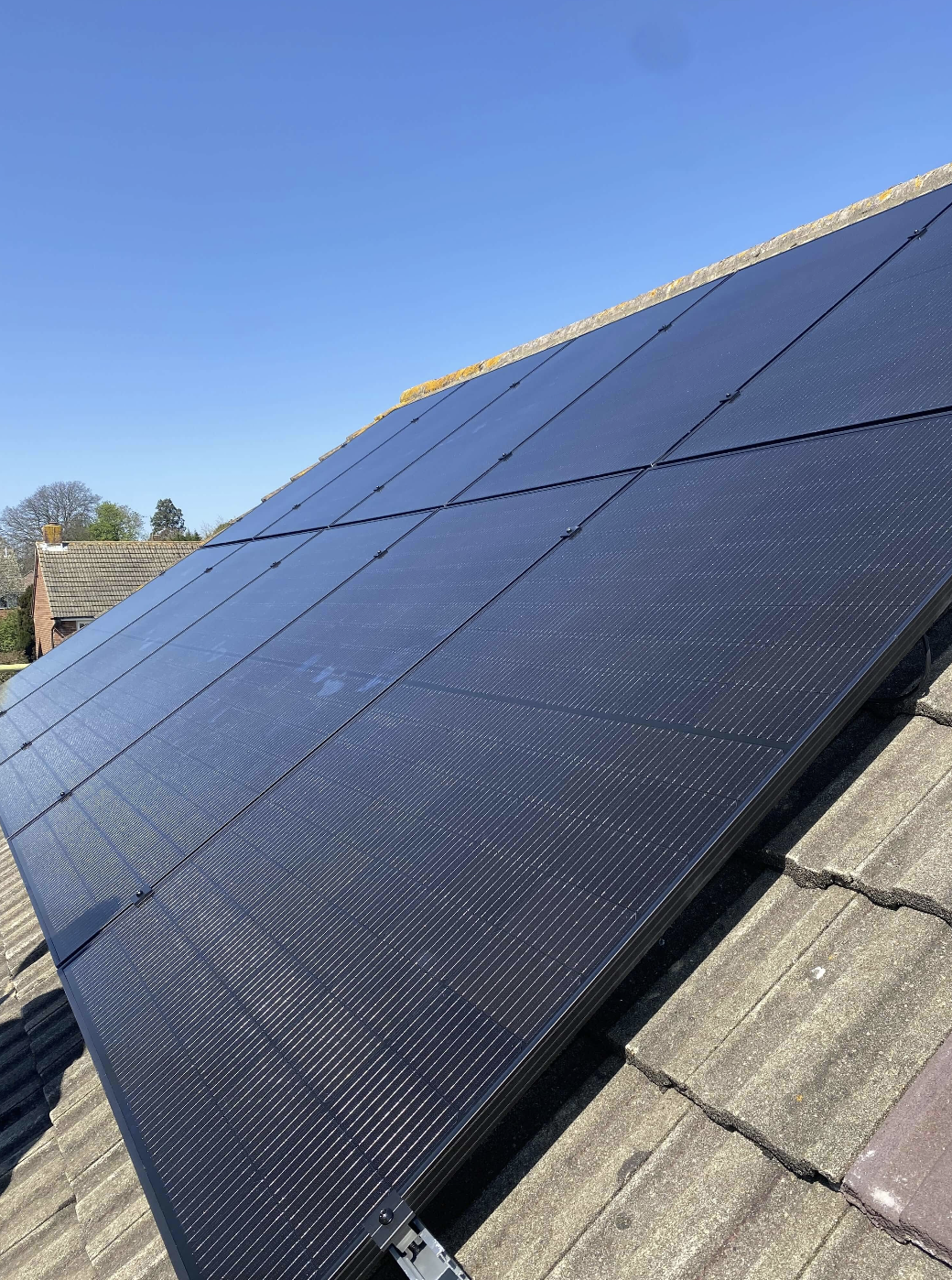
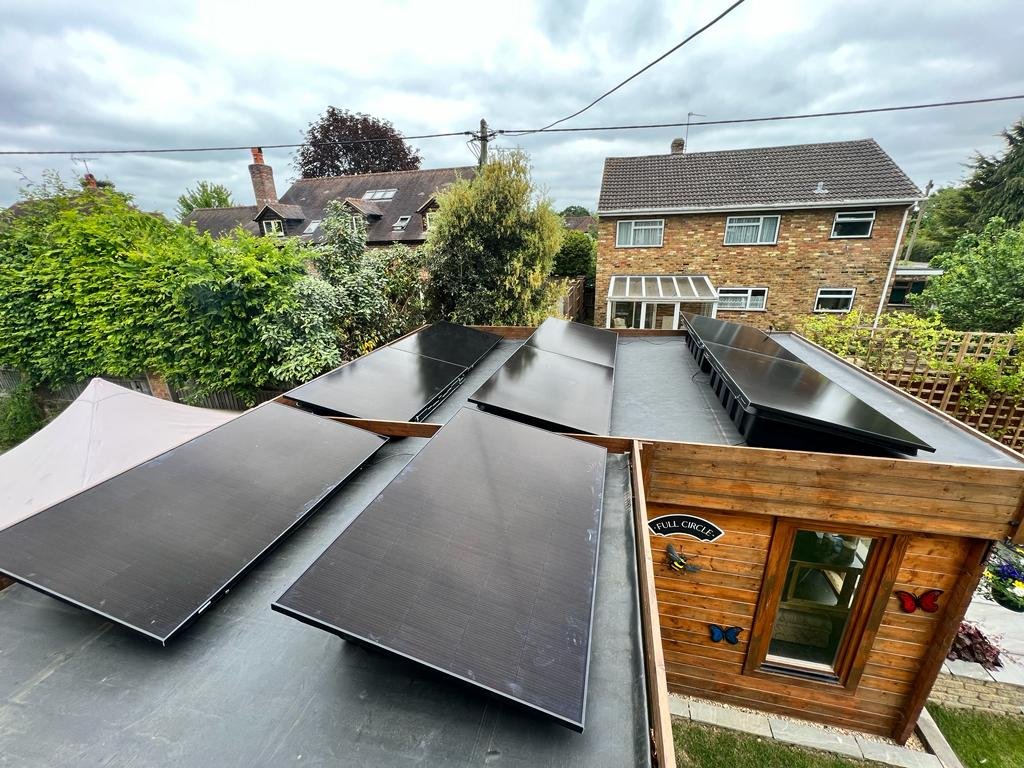
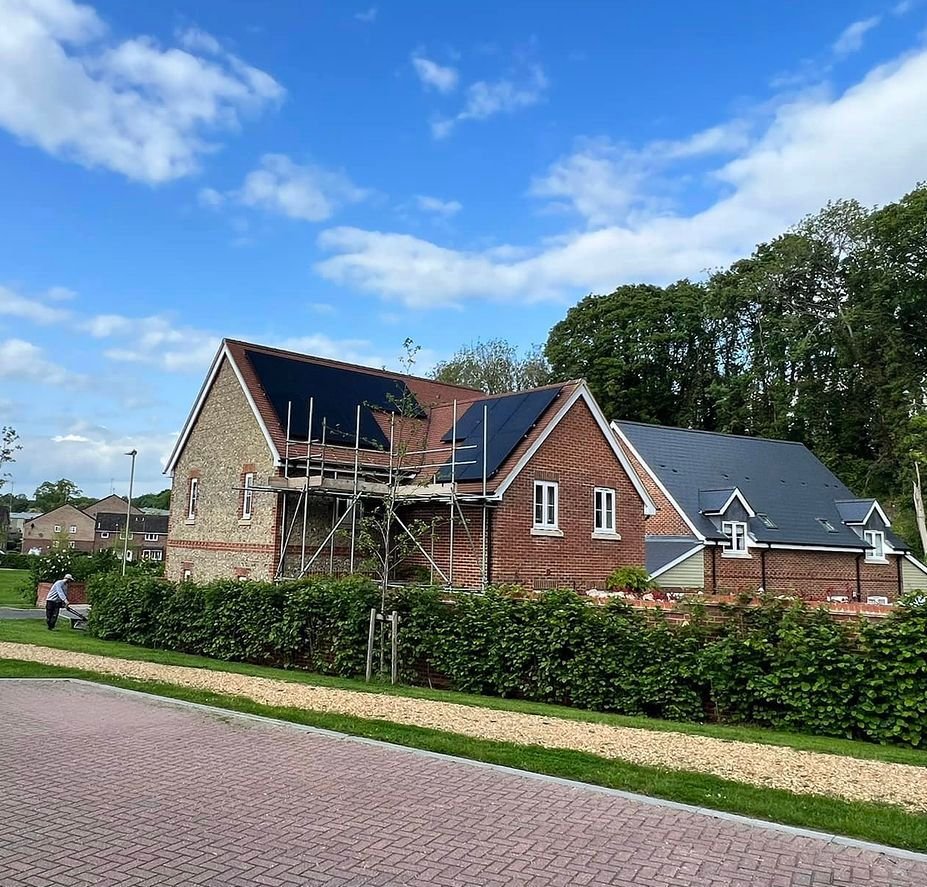
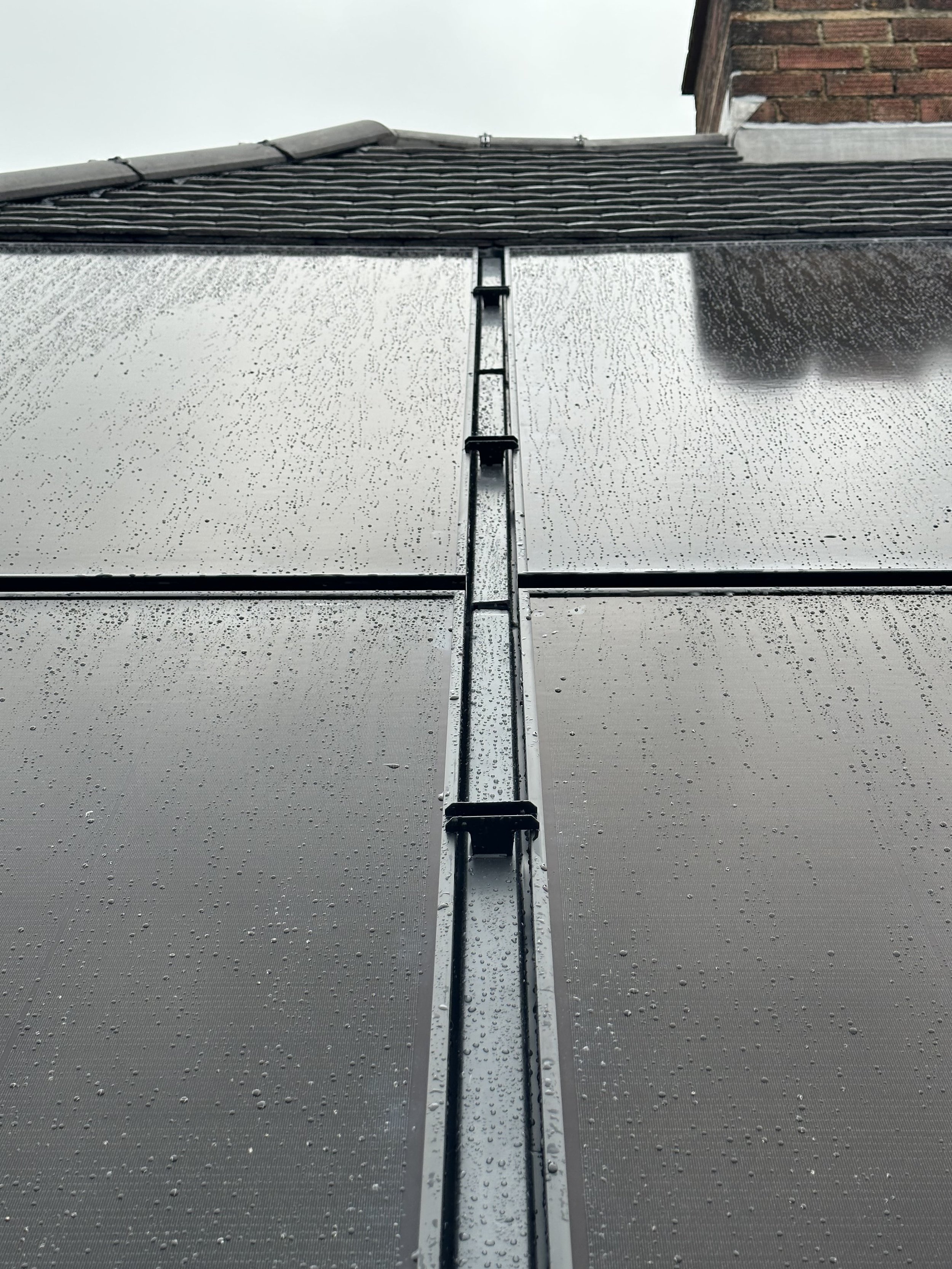
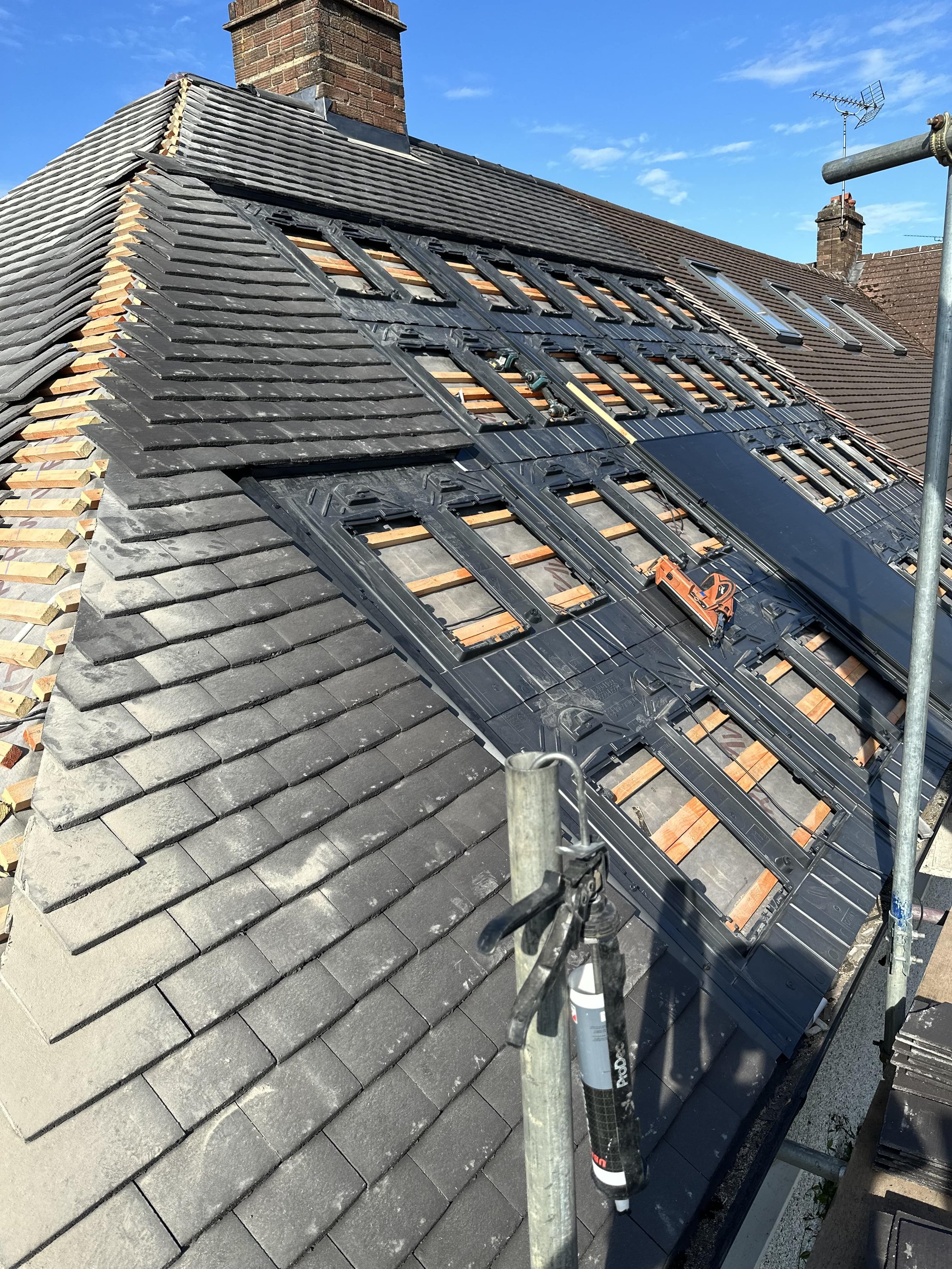
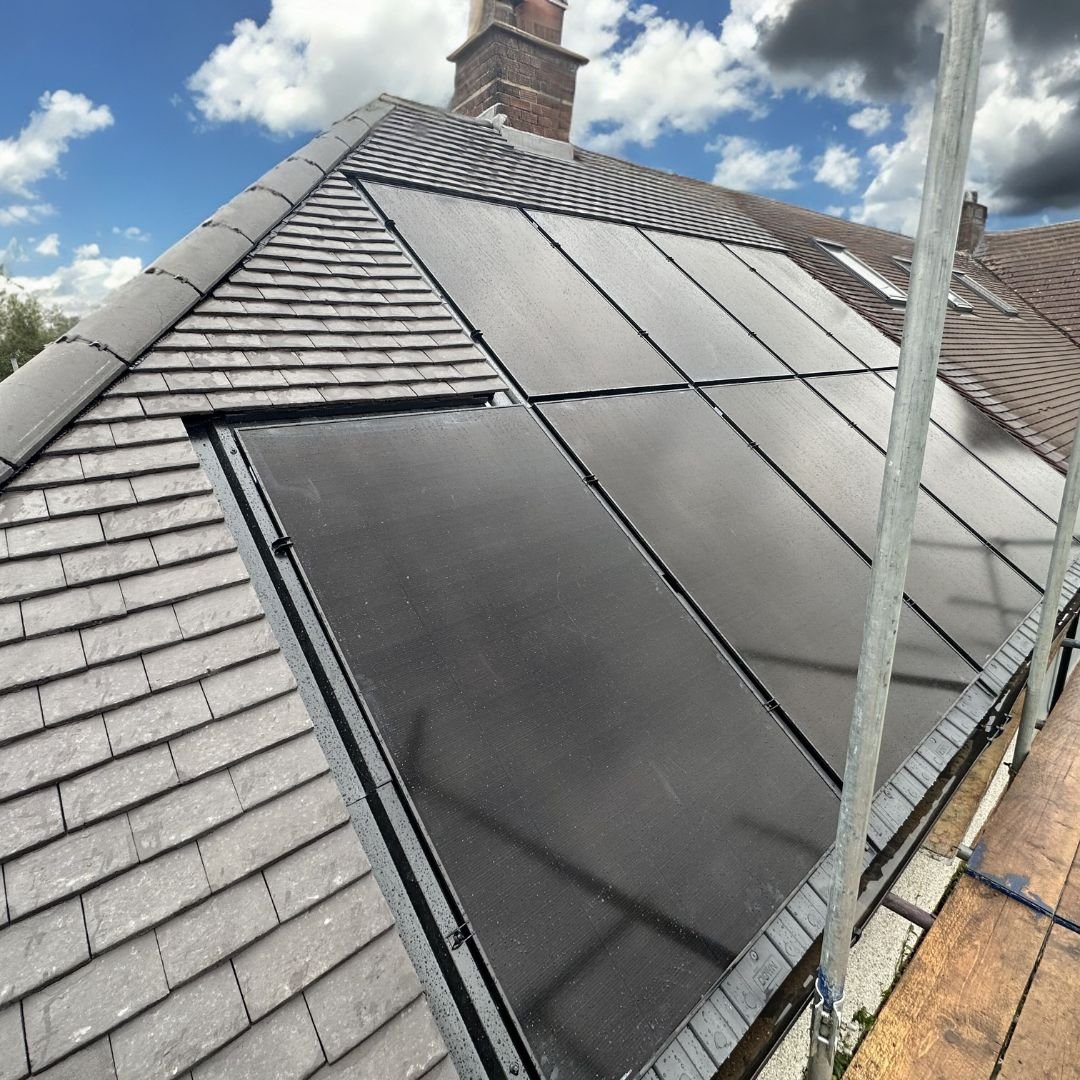
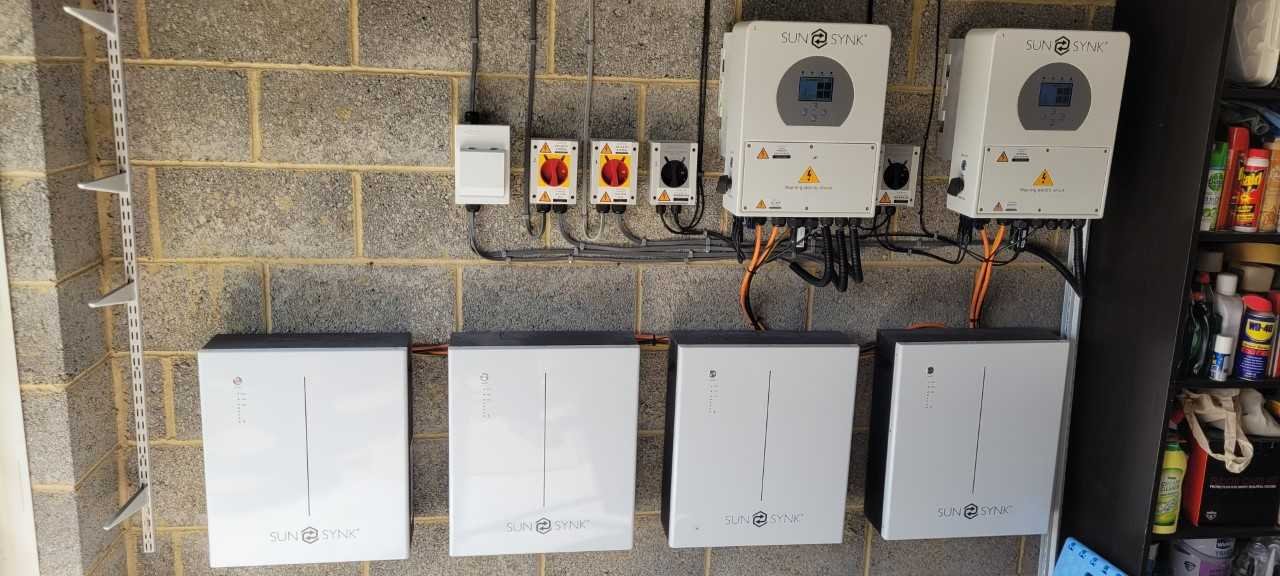
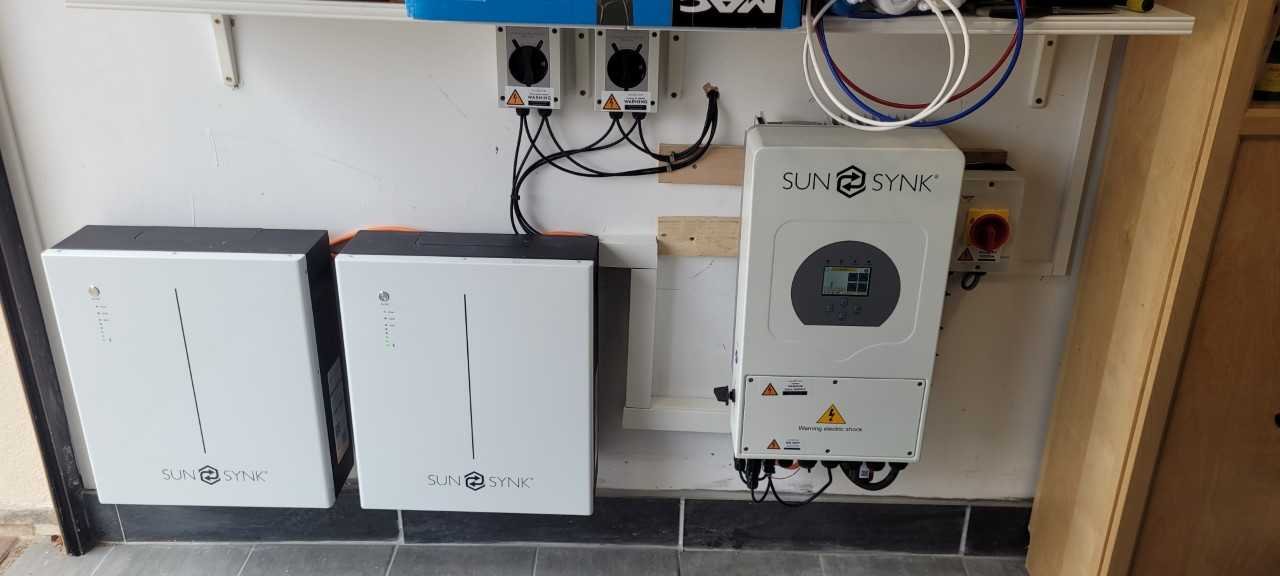
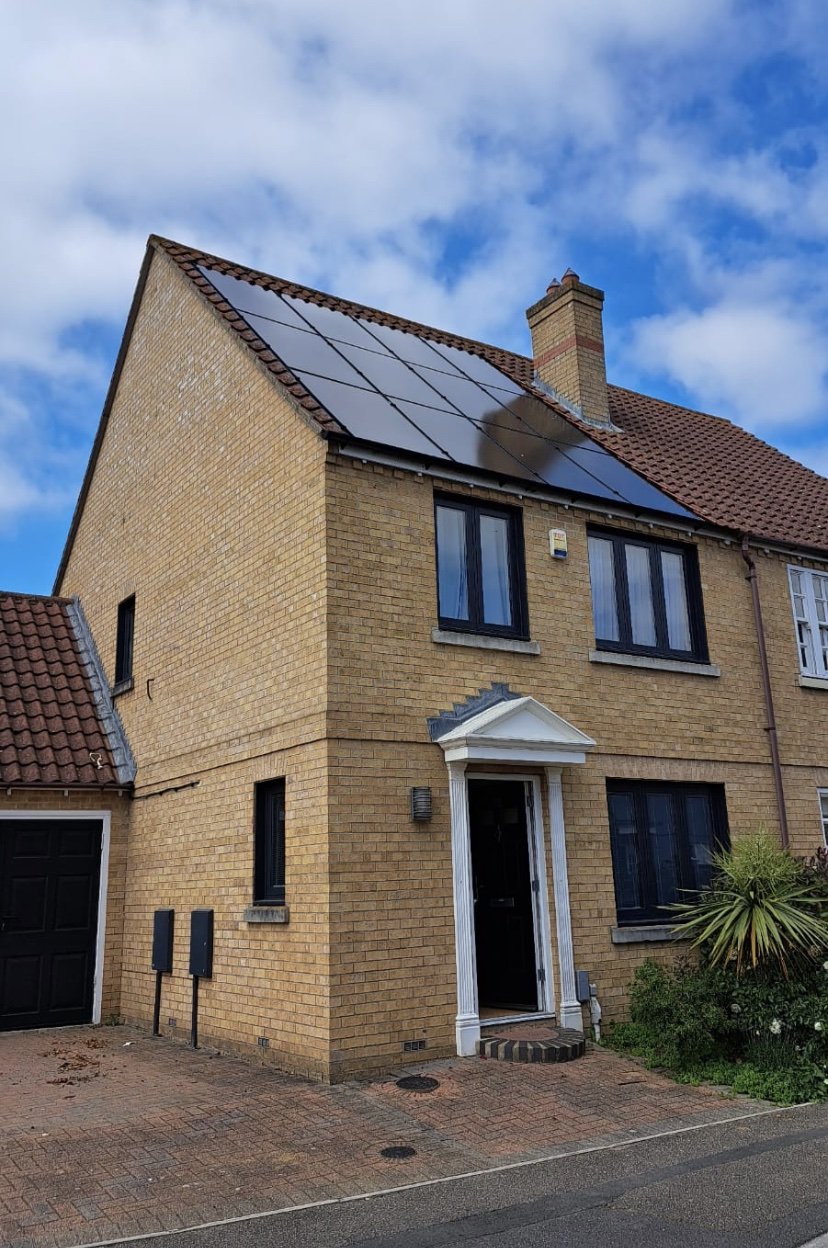
Solar Panel Installation and FAQ’s
Getting Started with Solar Panels
Dive into the world of solar panel installation with insights into flat roof setups, possible energy savings, how it works, panel options, and more.
Solar Panel Installation and Types
Discover how to participate in the SEG scheme and navigate planning permissions in the UK while exploring the essential concept of DNO approval for a seamless solar panel experience.
Find the best system size for your needs ☀️
Reliable Solar & Battery Services for Your Home
With CRG, you can be sure you’re getting the best results at a cost-effective price. Our highly-rated commercial solar installation services include the following:
Learn more about how our experienced solar energy professionals can help you — simply request a free quote online or call us on 0333 253 3531 today.
Read our great reviews.
From quote to after care we found CRG professional… From start to finish we found CRG helpful, professional and the workmanship excellent.






